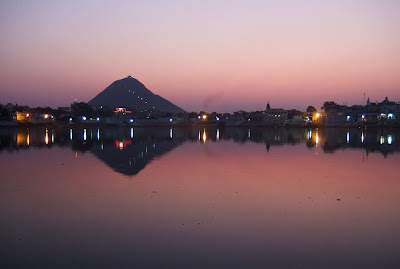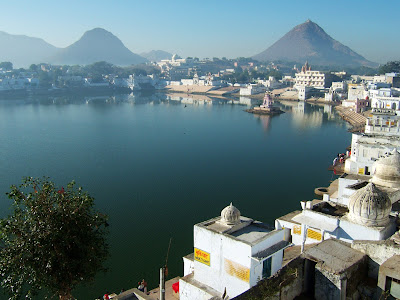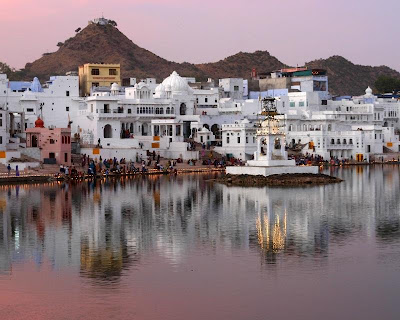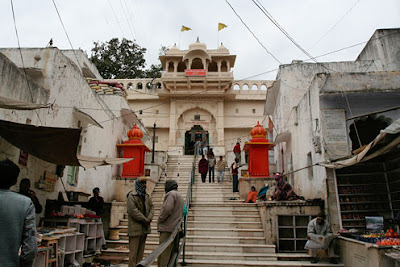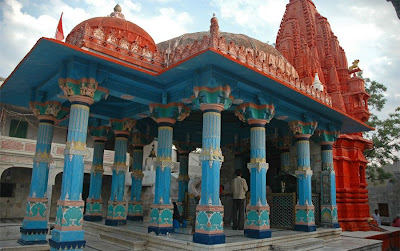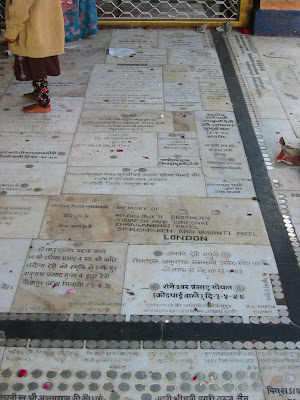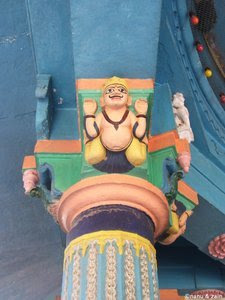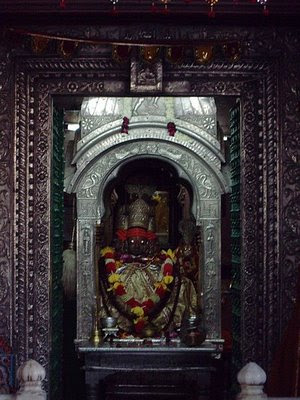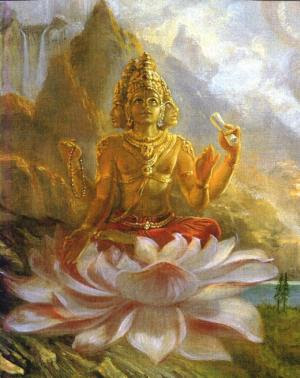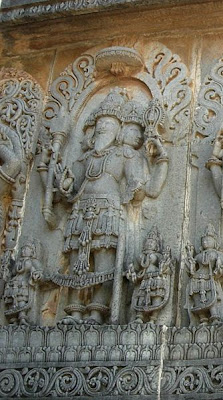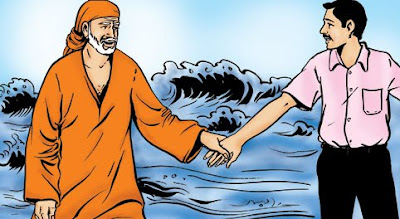| As usual, click on any of the below pictures to see the larger view or to save them to your computer.. Today, we will be going to one of the very famous temple of Lord Brahma which is in Pushkar, Rajasthan. On a personal note, Lord Brahma is very dear to my heart and I pray to Him everyday but this is the very first time that I have had the honour of atleast seeing some of the pictures of this temple on my computer and sharing the same with all of you. Pushkar Lake is located in the town of Pushkar in Ajmer district of the Rajasthan state of western India. The beautiful Pushkar Lake is a sanctified spot, and considered as old as the creation, and has been a place of pilgrimage for the Hindus since time immemorial. It is surrounded by 52 bathing ghats, where devotees throng in large numbers to take a dip during the month of Kartik (Oct./Nov.). According to Padma Purana, the Hindu religious text, Lord Brahma was in search of suitable place for a Vedic yagna. While contemplating, a lotus fell down from his hand on the earth and water spurted from three places one of them was Pushkar and Brahma decided to perform his yagna over here. It is believed that this is also the site where the Sage Vishwamitra meditated for thousands of years. The Pushkar Brahma Temple is located on the banks of the Pushkar Lake. The temple was originally built in the 14th century and stands on a raised platform. Marble steps lead upto the temple that has a red spire and an image of Hans, the vehicle of Lord Brahma, on the top of the main doorway to distinguish it from numerous other temples nearby. The temple becomes specially important during the Kartika Purnima in the months of October- November. This is the time when the sleepy town of Pushkar comes alive with the joyous Pushkar festival. It is also the time which marks the period during which Brahma performed his Yagna in Pushkar. Numerous people with deep faith in their hearts take a holy dip in the water of Pushkar Lake and bow their head before the Jagat Pita, Lord Brahma. A lovely silver carved turtle can be seen sitting with its face towards the sanctum sanctorum. The black and white chequered tiles floor around the turtle is full of silver coins donated by the devotees with their name and the birth and death anniversary date of their loved ones engraved on it. Thanks to the extreme sacredness of the place, it is advisable for those who travel to Pushkar, to respect the town's holy status and not to eat meat or consume alcohol. In fact it is an earnest desire for every pious Hindu to make a Pushkar pilgrimage. My heartfelt pranams at the humble feet of Lord Brahma. May He purify our souls with love, faith and devotion in our creator. Om Shree Brahmaa Devaaya Namaha!! According to the Puranas, Brahma is self-born (without mother) in the lotus flower which grew from the navel of Vishnu at the beginning of the universe. This explains his name Nabhija (born from the navel). Another legend says that Brahmā was born in water. In this he deposited a seed that later became the golden egg. From this golden egg, Brahma the creator was born, as Hiranyagarbha. The remaining materials of this golden egg expanded into the Brahm-anda or Universe. Being born in water, Brahmā is also called Kanja (born in water). Brahmā is said also to be the son of the Supreme Being, Brahman, and the female energy known as Prakrti or Maya. The complexion of Lord Brahma is red. He is clad in red clothes. Brahma is traditionally depicted with four heads, four faces, and four arms. With each head, He continually recites one of the four Vedas. He is often depicted with a white beard (especially in North India), indicating the nearly eternal nature of his existence. Unlike most other Hindu Gods, Brahma holds no weapons. One of His hands holds a scepter in the form of a spoon, which is associated with the pouring of holy ghee or oil onto a sacrificial pyre, signifying Brahma as the lord of sacrifices. Another of His hands holds a 'kamandalu'- a jar made of metal or even coconut shell, containing water. The water in this jar signifies the initial, all-encompassing ether in which the first element of creation evolved. Brahma also holds a string of prayer beads called the 'akshamālā', which He uses to keep track of the Universe's time. He is also shown holding the Vedas and, sometimes, a lotus flower. Message from the teachings of Sai baba for 22nd October When Baba is with us we can Easily Cross Over the Ocean of Worldly Life We should keep our minds on God and always contemplate on Him in order to cross the ocean of life. If not, at every stage, there would be obstacles, failures, humiliations and insults, leading to chaos in life. For the believers in Baba, no troubles would cause harm. With minds fixed on Baba, if we move ahead with a feeling that "You are making me walk, Father", Baba will turn the abysmal ocean of life into a knee-deep canal and ensures smooth passage by holding and leading us by His Hand.Though cursed by poverty, a devotee of Baba, Mhalsapathy' Posted By Deepa H |


